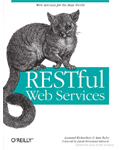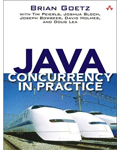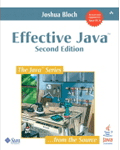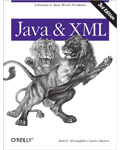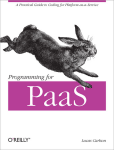-
User guide
- Part 1 - Introduction
- Part 2 - Core Restlet
- Part 3 - Restlet Editions
- Part 4 - Restlet Extensions
- Appendices
- Tutorials
- Javadocs
- Change Log
List of recommended books
No list of recommended resources will be exhaustive but this list comprises a really good introduction to the books we think would help you through your discovery of the Restlet Framework.
Restlet in action (Manning)
Restlet in Action gets you started with the Restlet Framework and the REST architecture style. You’ll create and deploy applications in record time while learning to use popular RESTful Web APIs effectively. This book looks at the many faces of web development, including server- and client-side, along with cloud computing, mobile Android devices, and semantic web applications. It offers a particular focus on Google’s innovative Google Web Toolkit, Google App Engine, and Android technologies.
The book takes you though a comprehensive presentation of Restlet’s main features, including subjects like security, testing and automatic documentation. You’ll learn while following the typical Restlet development process, with consistent illustrations based on a sample RESTful email app.
RESTful Web Services (O’Reilly)
In this milestone book, Leonard Richardson and Sam Ruby guide you through a revealing journey inside the architecture of the Web. Using concrete examples, they help you to use HTTP, URIs and REST at their full potential.
A design process called Resource Oriented Architecture provides a pragmatic application of REST principles and best practices based on findings from the REST community. Importantly, this book is also the first one to significantly cover the Restlet framework, providing a good opportunity to compare it to other frameworks like Ruby on Rails and django. A must read for all REST and Restlet enthousiasts!
Java Concurrency in Practice (Addison-Wesley)
RESTful Web applications are very scalable in nature and the Restlet framework lets you fully take advantage of this REST architectural feature throught multi-threading and a session-free design. Still, you need to be aware of the Java concurrency best practices when designing your Restlet applications.
This book was written by the team how designed the new concurrency features added to Java 5 and Java 6. It has four parts: Fundamentals, Structuring Concurrent Applications, Liveness, Performance, and Testing, Advanced Topics.
Effective Java, Second Edition (Addison-Wesley)
While Restlet was designed to perfectly match the REST concepts, great care was also taken when transposing those concepts into a clean Java API. Among the various sources available on Java API design best practices, this book comes out as a clear winner. Each one of the 78 rules proposed is clearly explained, with pros and cons put in a balance and clarified with examples.
This book was written by Joshua Bloch, chief Java architect at Google, and the new edition covers the latest enhancements to the Java language such as Generics, Annotations or Enums. Every Restlet as well as every Java programmer should have this gem on his bookshelf!
Java and XML, Third Edition (O’Reilly)
If you are new to XML or to XML used in Java, this is a useful hands on book to read. In its third edition published in December 2006, it now covers the most recent XML processing techniques such as StaX.
As XML is the most common way to exchange representations in RESTful applications, this is an essential piece of technology to understand. This will definitely help you while learning REST and the Restlet framework which has extensive support for XML.
Programming for PaaS (O’Reilly)
Platform-as-a-Service (PaaS) is gaining serious traction among web and mobile developers, but as new PaaS providers emerge and existing vendors upgrade their features, it’s hard to keep track of what PaaS has to offer. This thorough introduction takes you through the PaaS model from a developer’s point of view, and breaks down the types of services that Google App Engine, Windows Azure, Heroku, Cloud Foundry, and others deliver.
The book also recommends Restlet Framework to interact with RESTful web APIs from Android mobile apps. Restlet also provides APISpark, its own PaaS for Web APIs, so this book is a recommend read for all Restlet developers.


